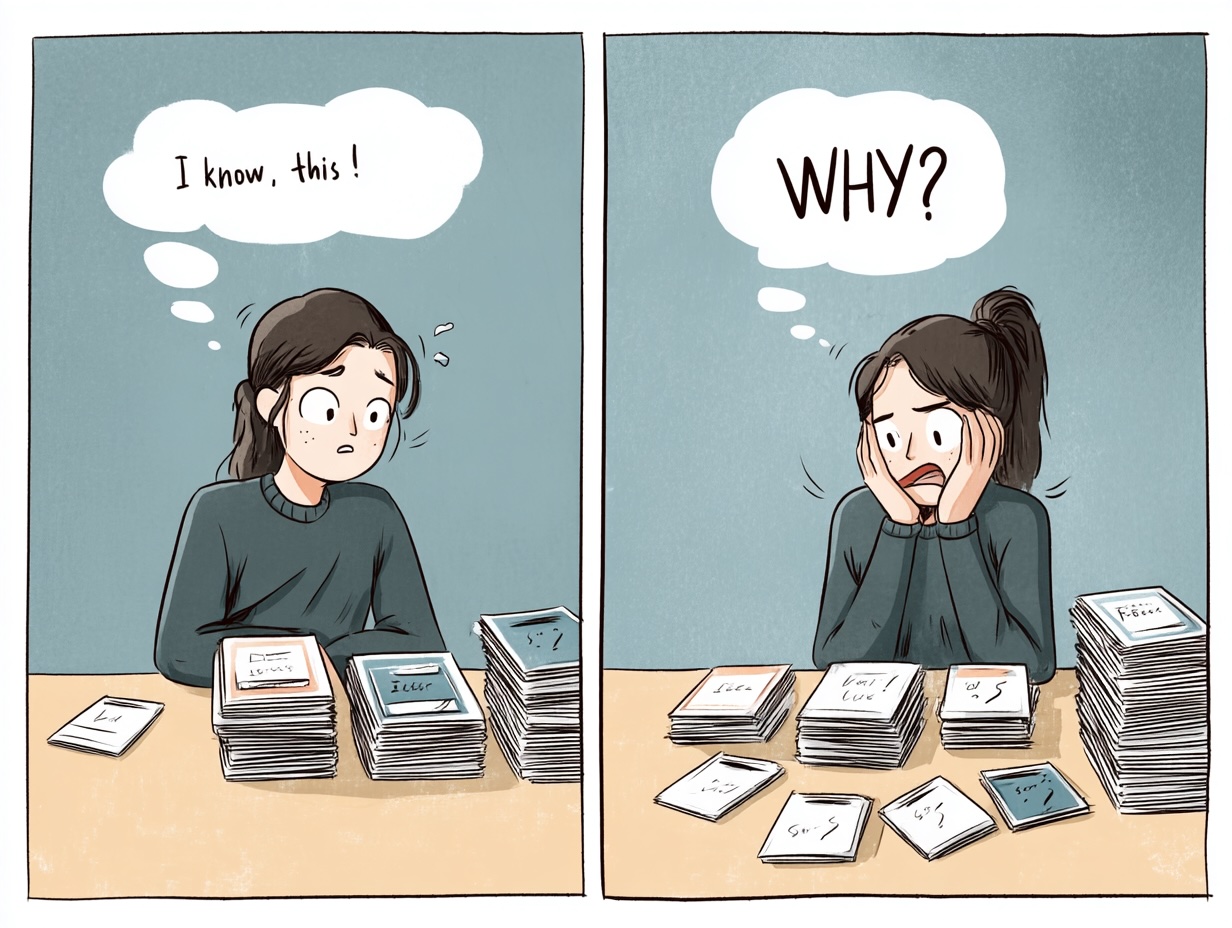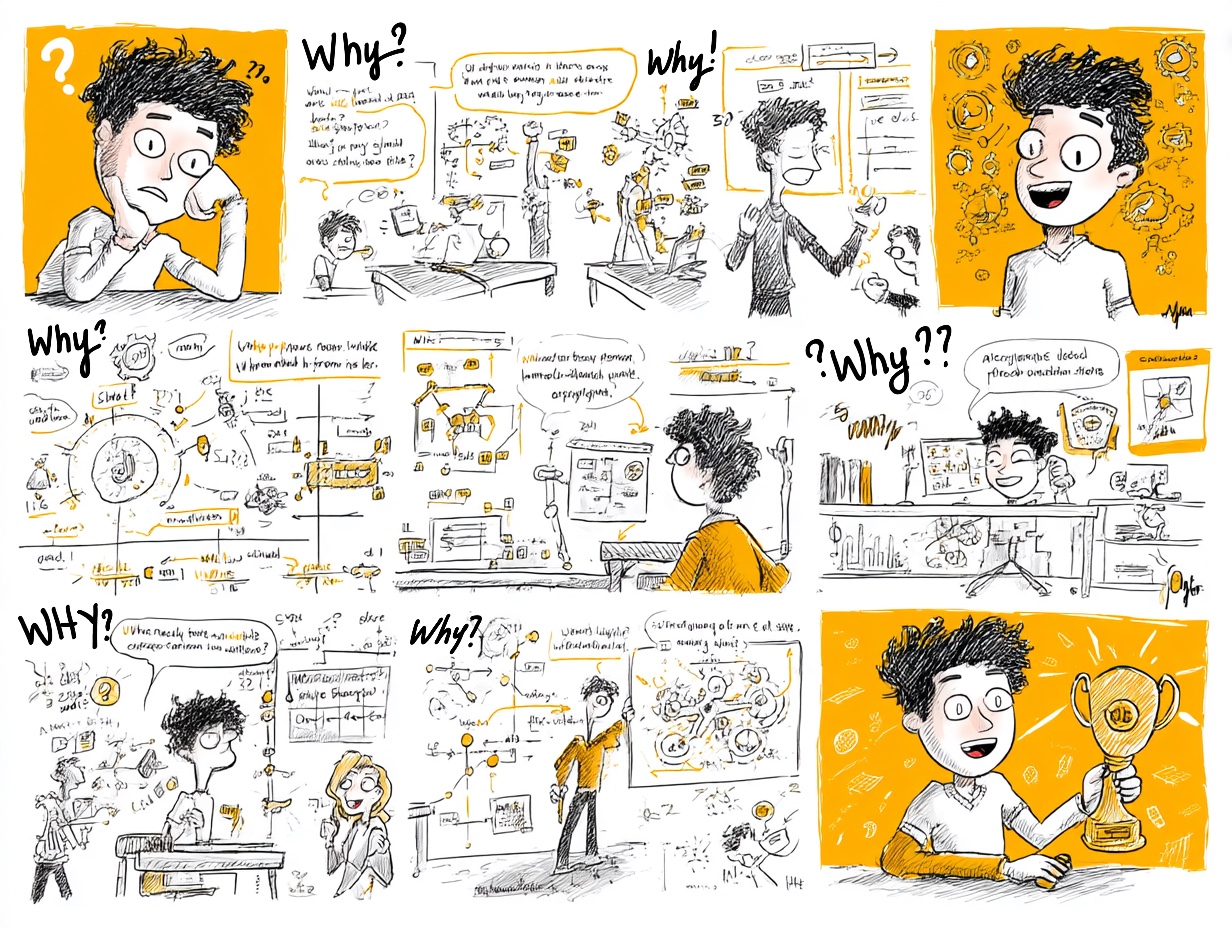Struggling with “Why” Questions in Organic Chemistry? Here’s Some Real Advice
“I’m studying hard, doing all the mechanisms right, but when the exam asks ‘Why?’ or ‘Explain,’ I get completely stuck. What should I do?”
Sound familiar?
If it does, know this — you’re not alone. Many students hit this exact wall. Memorizing mechanisms and naming compounds feels like a good start, but when it comes to explaining why something happens, you need a slightly different skill set. And no, the answer isn’t just “study more.”
Let’s break it down.
Studying vs. Understanding
When people say “study more,” they usually mean “spend more time reviewing the material.” But the truth is, time alone doesn’t automatically lead to understanding. More importantly, reviewing is a passive approach that often gives very marginal — if not negligible — results.
When you constantly review material you’ve already seen, rework the same examples, and re-read notes, you’re not really studying — you’re just recognizing. And recognition is a treacherous trap. It feels good, because everything looks familiar. But it doesn’t push you toward actually improving your skills.
If you want to confidently answer “Why” and “Explain” questions, you need to train yourself to think differently: focus less on memorizing facts, and more on understanding principles.
Every time you look at a mechanism, structure, or reaction, start asking yourself:
- Why does this reaction happen at this position and not another?
- Why is this molecule more stable?
- Why is this mechanism favored over others?
- Why does this electron move here instead of there?
Organic chemistry rests on a few fundamental ideas: structure, stability, reactivity, and electron flow. The more you connect new information back to these ideas, the stronger your understanding becomes.

The Power of Definitions
Before you start asking “why” questions, make sure you actually know what you’re talking about.
I often have students come to me struggling with a concept after studying for hours. One of the first things I ask is: “Can you define it?”
For example, if you’re struggling with acid-base chemistry, start by asking yourself:
- What is an acid?
- Can I identify one?
- Why is this species an acid and not another?
Or, if you’re struggling with stereochemical relationships, ask yourself:
- Do I remember the definitions of enantiomers and diastereomers?
- Or am I just relying on “common features” like counting chiral centers?
Remember: diastereomers are nonsuperimposable non-mirror images. It’s very different from saying, “they have two chiral centers.” (They don’t have to!)
If you only focus on the number of chiral centers, you’ll miss examples like pairs of alkenes that are diastereomers — even though they don’t contain a single chiral atom!
Definitions are your anchors. If you’re vague about what things are, it’s nearly impossible to reason through “why” they behave the way they do.
The Power of Asking “Why”
Instead of memorizing that tertiary carbocations are more stable than secondary ones, push yourself to ask why. (Hint: it’s about hyperconjugation and inductive effects.)
Instead of just learning that an SN2 reaction prefers primary substrates, ask why backside attack struggles with bulky groups.
Training yourself to think this way rewires your brain to see organic chemistry as a logical system — not just a list of disconnected facts. And once you start seeing the logic, answering “Why” questions becomes much more natural.

Real Progress Takes Time
One last thing: be patient with yourself.
Moving from memorization to true understanding doesn’t happen overnight. It’s a skill you build with practice, just like learning an instrument or training for a sport.
If you’re putting in the effort, asking good questions, and actively trying to understand the why behind what you’re studying — you’re already on the right track.
Final Thought
If you’re feeling stuck, remind yourself: You can do this. You’re already asking the right questions — now it’s just a matter of practicing the right way of thinking.
Organic chemistry rewards understanding, not just effort.
Keep going. You’ve got this!

